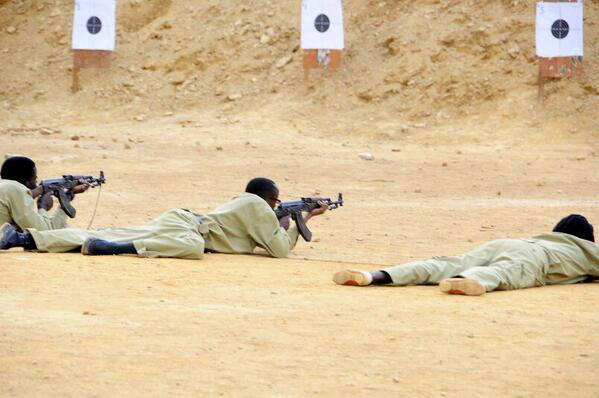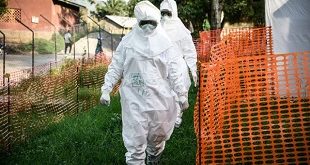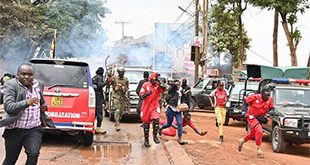
Kampala, Uganda | THE INDEPENDENT | A section of residents affected by stray bullets during military drills at the Uganda Military Academy- Kabamba and Kalama in Mubende district are opposed to the proposed compulsory acquisition of their land by Uganda People’s Defense Forces-UPDF.
For over ten years, residents of Kakikoba, Kiwumulo, Kamusongole and Muzirandulu, Ngalama, Kyakasa, Kashenyi, Kubbiri and Kabbo villages in Kasambya Sub-county have been complaining about stray bullets.
On top of damaging their property and livestock, the stray bullets have been hitting residents causing permanent injuries, and according to records, sometimes death.
Records from the affected communities show that over 25 people have been affected by fragments from the explosives this year alone. Two of them died while five are still nursing wounds.
Hussein Mutebi, a resident of Kakikoba, says the explosives used by the soldiers release sharp fragments, which destroy whatever they come across.
Uganda Radio Network has learnt that following numerous complaints from residents, the army decided to buy them off and compensate them for the damage caused. The development was communicated in a recent meeting in Kabamba barracks between resident and the UPDF land board.
Lt. Col. Deo Akiiki, the UDPF Deputy Spokesperson, confirmed the development noting that the army has been working around the clock to assess the impact of the problem and lay strategies guaranteeing the safety of all people neighboring the academy.
He says the army considered to acquire land within the radius where the stray ammunition lands as a permanent solution to the problem.
“We have on several occasions engaged the affected communities and updated them on several solutions suggested. The army land board is currently working on the matter but this may take some time since a lot of things must be checked out to ensure transparency,” Akiiki told Uganda Radio Network.
On the contrary, the affected residents are opposed to the proposal to sell their land and relocate to other areas far away from the training ground.
Our reporter has also learnt that although some residents of Kyakasa and Kashenyi villages mostly cattle herdsmen have accepted the UPDF proposal for relocation, their counterparts in Kabbo and Kamusonge parishes have declined.
“The Ministry of Defense should help us and change the target for their bombs. They should also buy machines, which stops bombs from jumping their area,” reads a recent letter by the residents of Kabbo and Kamusonge parish to the Defense Ministry.
Asuman Hamzah Kitakule, the Speaker Kasambya Sub County, notes that they are not ready to vacate their land where they have lived for decades with their families.
Kitakule says that the villages lived in peace until when the academy was formed in 2007 by merging the Cadet Officer School that was originally based at Jinja with the Uganda School of Infantry at Kabamba.
Nathan Ssekajja, the Kamusongele LC II chairperson also says they are not ready to vacate their land, arguing they had a similar problem in the 1990’s but the commanders agreed to change their targets.
Aisha Namata, who is still mourning her granddaughter who was killed by a stray bullet, also says she is unwilling to leave the area.
She argues that many people have been evicted by government in the same manner and ended up homeless.
However, Akiiki says the resident’s plea to the army to change the target might not yield the desired results, because the targets were recommended by technicians.
“Our people should know that some things are simpler said than done. For the safety of their lives they should accept to vacate the area,” he said.
However, Brig. Deus Sande, the cantonment commander Uganda Military Academy -Kabamba, confirms that stray bullets affect communities but denies accusations of intimidating victims not to speak about the matter.
“Whenever an incident happens, we rush to the scene. Even last time when one of the residents was affected we airlifted her to Kampala for treatment,” he revealed.
Article 26 of the 1995 Constitution as amended provides for the right to own property by an individual or a group.
The law provides for exceptions under, which a person can compulsorily be deprived of his or her property specifically land and these include public safety, public order, morality and for health reasons.
*****
URN
 The Independent Uganda: You get the Truth we Pay the Price
The Independent Uganda: You get the Truth we Pay the Price


